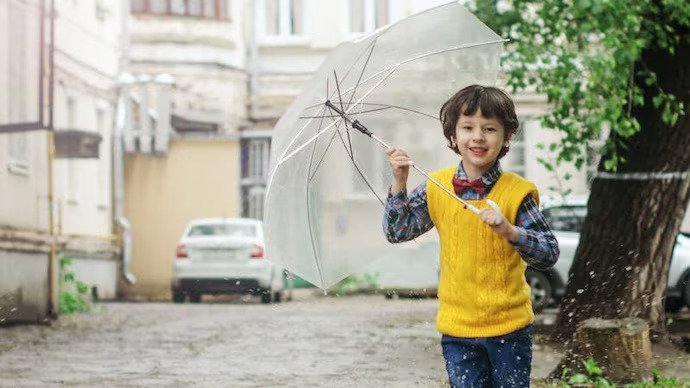Important precautions to take during the rainy season to prevent illnesses in children
As monsoon season arrives in many regions of the nation, read these suggestions to protect your kids from illnesses associated with the wet season.

The increase in dangerous suspended particles in the air that might injure children is mostly caused by the monsoon season's heavy moisture content. The likelihood of becoming ill rises, thus it's critical to take the required safety and health precautions for our children.
It is well known that unclean rainfall and puddles can serve as havens for a variety of dangerous microorganisms, including viruses, bacteria, and insects that kids can come into touch with when playing outside and get sick from. In a similar vein, bacteria in heavy rain can contaminate and taint drinking water, raising the possibility of gastrointestinal illnesses.

Dr. Abhimanyu Sengupta, Senior Consultant Paediatrician at Ankura Hospital for Women and Children in Pune, stated in an interview with HT Lifestyle that "Children can be harmed by temperature fluctuations and cold, damp air, which can result in infections related to the nose and throat as well as allergic respiratory disorders that can block the breathing passages."
He emphasized that children are more likely to contract the following illnesses during the wet season:
1. Digestive disorders: There are a number of causes for these, including consuming food from a street vendor that was prepared in an open space or in an unhygienic environment where there is a higher risk of food contamination. Abdominal pain, bloating, diarrhea, and vomiting fits can all result from consuming or drinking food and beverages contaminated with pathogens. Since food poisoning is frequent, appropriate safety measures must be taken.
2. Respiratory infection: Children are especially vulnerable to respiratory infections because to the weakened immune systems and increased potential for respiratory bacteria to proliferate and spread when temperatures abruptly drop. Children may be at risk from air pollution, which is largely caused by heavy rain. Children who breathe this contaminated air may develop a variety of respiratory ailments, including cold, cough, sore throat, sneezing, and wheezing.
3. Dengue and malaria: Aedes and Anopheles, two hazardous mosquitoes that transmit dengue and malaria, respectively, can find refuge in water kept in open containers or buckets for various domestic uses. Puddles, stagnant water, and water in flower pots and other containers are breeding grounds for these mosquitoes. Many symptoms, including fever, chills, sweating excessively, exhaustion, pain behind the eyes, and rashes and skin irritation, can affect children.
What's Your Reaction?





















